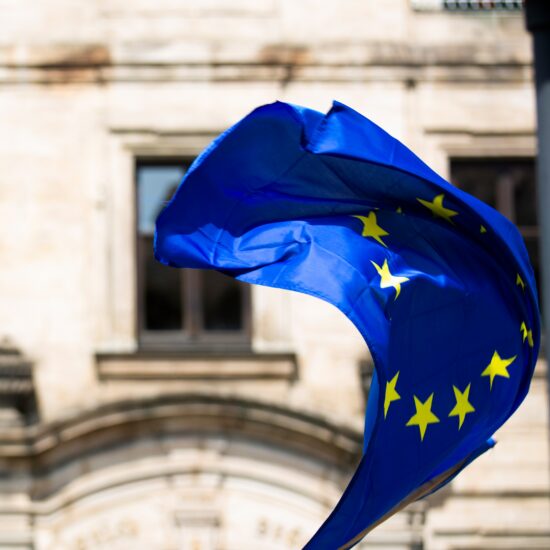- Business Needs
- Product & Solutions
- Network
Transformational Hybrid SolutionsOur cloud-enablement services offer the best performance on your traffic-heavy websites or mission-critical applications.
Core NetworksTata Communications™ global IT infrastructure and fibre network delivers the resources you need, when and where you need them.
Network Resources
- Unified Communications
Unified Communications As A ServiceBreak the barriers of borders efficiently and increase productivity with Tata Communications’ UC&C solutions.
Global SIP ConnectEmpower your business with our SIP network and witness it grow exponentially.
InstaCC™ - Contact Centre As A ServiceCloud contact centre solutions for digital customers experience and agent productivity.
Unified Communication Resources Case studies, industry papers and other interesting content to help you explore our unified communications solution better.
- Mobility and IoT Solutions
IoT SolutionsThe Internet of Things is transforming the way we experience the world around us for good. Find out more about our Internet Of Things related solutions here.
Mobility SolutionsTata Communications’ mobility services enable your enterprise to maintain seamless communication across borders, with complete visibility of cost and usage.
- Tata Communications MOVE™ Private NetworkEasy-to-manage enterprise connectivity solution, offering a robust and reliable network with a digital ecosystem enablement platform to achieve your digital transformation vision
- Products
Mobility & IoT Resources
- Our Global PresenceHarness the power of our mobile network across the globe to enable superior connectivity helping your business accelerate innovations and scale with confidence
- Cloud
Multi-Cloud SolutionsWith enterprises transitioning to a hybrid multi-cloud infrastructure, getting the right deployment model that yields ROI can be a daunting task.
Cloud ComplianceCompliant with data privacy standards across different countries and is also designed to protect customers’ privacy at all levels.
IZO™ Cloud Platform & ServicesIZO™ is a flexible, one-stop cloud enablement platform designed to help you navigate complexity for more agile business performance.
Managed Infrastructure ServicesIntegrated with our integrated Tier-1 network to help your business grow efficiently across borders.
Cloud PartnersWe support a global ecosystem for seamless, secure connectivity to multiple solutions through a single provider.
Cloud Resources
- Cyber Security
Governance, Risk, and ComplianceRisk and Threat management services to reduce security thefts across your business and improve overall efficiencies and costs.
Cloud SecurityBest-in-class security by our global secure web gateway helps provide visibility and control of users inside and outside the office.
Threat Management - SOCIndustry-leading threat-management service to minimise risk, with an efficient global solution against emerging security breaches and attacks.
Advanced Network SecurityManaged security services for a predictive and proactive range of solutions, driving visibility and context to prevent attacks.
Cyber Security ResourcesCase studies, industry papers and other interesting content to help you explore our securtiy solution better.
- Carrier Services
Hosted & Managed ServicesTata Communications provide new models for efficient wholesale carrier voice service management. With our managed hosting services make your voice business more efficient and better protected
Wholesale Voice Transport & Termination ServicesYour long-distance international voice traffic is in good hands. End-to-end, voice access & carrier services which includes voice transport and termination with a trusted, global partner.
Voice Access ServicesTata Communication’s provide solutions which take care of your carrier & voice services, from conferencing to call centre or business support applications.
Carrier Services Resources
- Content Delivery Network
CDN Acceleration ServicesOur CDN Web Site Acceleration (WSA) solution helps deliver static and dynamic content, guaranteeing higher performance for your website.
CDN SecuritySafeguard your website data and customers’ information by securing your website from hacks and other mala fide cyber activities.
Video CDNDeliver high-quality video content to your customers across platforms – website, app and OTT delivery.
CDN Resources
- Network
- Industries
- Manufacturing Solutions
Elevate CXIncrease customer satisfaction while empowering your service team to deliver world-class customer experience and engagement.
- Run Factories EfficientlySeamlessly connect people, teams, processes, systems and machines with with the power of simplified communications.
- Become AgilePowering you with agility, innovation and efficiency, Tata Communications helps you build the factory of the future.
- Collaborate BetterSeamlessly connect people, teams, processes, systems and machines with with the power of simplified communications.
- Automotive Solutions
- Single Pane of GlassTata Communications MOVE™ offers visibility, helping you monitor, manage and control multiple platforms from a single portal.
- Intelligent ConnectivityExperience the highest standard of global connectivity for your connected automobile, with 24×7 network quality monitoring.
- Software Over-the-Air (SOTA) OptimizationWith cost saving opportunities, Tata Communications MOVE™ is vehicle manufacturers’ best connectivity partner for SOTA updates.
- Employee Health and Safety solutionBe equipped with customised solutions, enhanced worker safety and quicker emergency response at par with safety parameters.
- Banking & Finance Solutions
- Secured Access PerformanceProtecting the distributed workforce against cybersecurity threats, while providing access to enterprise applications.
- Productive CollaborationA unified collaborative platform helping enterprises facilitate a high performing and result-oriented work environment.
- Customer ExperienceEmpower your CX strategy as customers step foot into the world of personalised, tailored and consistent customer experiences.
- IT Agility with IZO™ Financial CloudWith our IZO™ Financial Cloud, enter the next-gen of financial services driving IT agility and powering innovation.
- Consumer Goods & Retail
- Customer Engagement TransformationTransform your customer experiences with an omnichannel approach that feels personal, immersive and secure
- Agile Digital InfrastructureExplore digital infrastructure solutions that empower your business with speed, security and stability
- Interconnected Warehouse ManagementEnsure a reliable and well-connected setup by connecting warehouses and improving their efficiency
- Integrated Supply Chain OperationsUpgrade your supply chain using our versatile end-to-end services and provide your customers with a seamless experience
- Media and Entertainment
Live Event ServicesTata Communications’ live event services help battle the share if eyeballs as on-demand video drives an explosion of diverse content available on tap for a global audience.
Media Cloud Infrastructure ServicesTata Communications’ media cloud infrastructure offers flexible storage & compute services to build custom media applications.
Global Media NetworkTata Communications’ global media network combines our expertise as a global tier-1 connectivity provider with our end-to-end media ecosystem.
Use CasesUse cases of Tata Communications’ Media Entertainment Services
Remote Production SolutionsMedia contribution, preparation and distribution are highly capital-intensive for producers of live TV and video content, and their workflows are complex.
Media Cloud Ecosystem SolutionsThe Tata Communications media cloud infrastructure services offer the basic building blocks for a cloud infrastructure-as-a-service.
Global Contribution & Distribution SolutionsTata Communications’ global contribution and distribution solution is built to reduce capital outlay and grow global footprint.
Satellite Alternative SolutionsAs more and more consumers choose to cut the cord & switch to internet-based entertainment options, broadcasters are faced with capital allocation decisions.
- Sports
- Manufacturing Solutions
- Insights
- Customers
- Partners
- Company
- About Us
LeadershipA look into the pillars of Tata communications who carry the torch and are living embodiment of Tata’s values and ethos.
Culture & DiversityHere at Tata Communications we are committed to creating a culture of openness, curiosity and learning. We also believe in driving an extra mile to recognize new talent and cultivate skills.
OfficesA list of Tata Communications office locations worldwide.
FAQCheck out our FAQs section for more information.
SustainabilityOur holistic sustainability strategy is grounded in the pillars of People, Planet and Community with corporate governance at the heart of it.
- Investor Relations
BoardHave a look at our board of members.
ResultsFind out more about our quarterly results.
Investor PresentationsFollow our repository of investor presentations.
FilingsGet all information regarding filings of Tata communications in one place.
Investor EventsAll investor related event schedule and information at one place.
GovernanceAt Tata, we believe in following our corporate social responsibility which is why we have set up a team for corporate governance.
SharesGet a better understanding of our shares, dividends etc.
SupportGet all investor related contact information here.
- Analyst Relations
- Awards & Recognition
- News Centre
- Enabling Digital India
- Careers
- About Us


